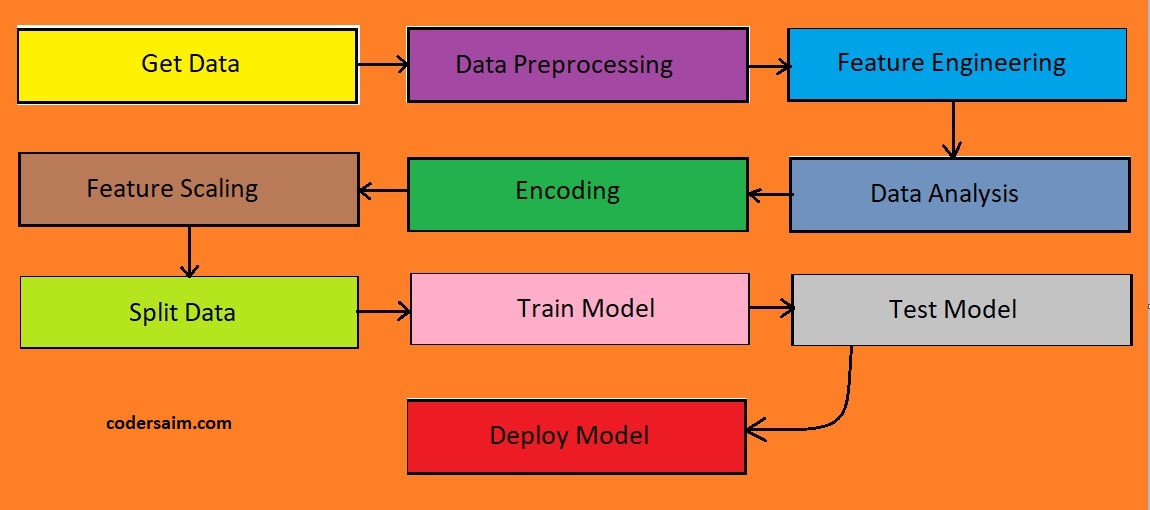Learn Python
Learn Data Structure & Algorithm
Learn Numpy
Learn Pandas
Learn Matplotlib
Learn Seaborn
Learn Statistics
Learn Math
Learn MATLAB
introduction
Setup
Read data
Data preprocessing
Data cleaning
Handle date-time column
Handling outliers
Encoding
Feature_Engineering
Feature selection filter methods
Feature selection wrapper methods
Multicollinearity
Data split
Feature scaling
Supervised Learning
Regression
Classification
Bias and Variance
Overfitting and Underfitting
Regularization
Ensemble learning
Unsupervised Learning
Clustering
Association Rule
Common
Model evaluation
Cross Validation
Parameter tuning
Code Exercise
Car Price Prediction
Flight Fare Prediction
Diabetes Prediction
Spam Mail Prediction
Fake News Prediction
Boston House Price Prediction
Learn Github
Learn OpenCV
Learn Deep Learning
Learn MySQL
Learn MongoDB
Learn Web scraping
Learn Excel
Learn Power BI
Learn Tableau
Learn Docker
Learn Hadoop
Machine learning Introduction
What is machine learning?
Machine learning is a department of artificial intelligence. Machine learning gives the ability to machine to
learn or train itself using data and do prediction of new things according to the data.
In machine learning we provide data to the machine. After getting the the machine trains itself according to
the given data. After that it can predict if some new data comes. Now what type of and what type of
predictions, we will learn about it example use cases.
Example of use cases machine learning
Example 1:
Suppose you have some data of cars like, car engine type, number of seats, car color, car condition rating,
model, price. Now put those data to a machine using machine learning model. After this, the machine will train
itself using the machine learning model.
Now suppose a person come to you and tell you, he want to buy a second hand car. But he doesn't have any idea
about the car price.
Now what you can do is that, you can ask the some information about what type of car he wants. The
information's are car engine type, number of seats, car color, car condition rating, model. Now if you put
these information's in the machine then the machine will give you a prediction and the prediction will be, car
price.
Now how this machine gives you the result?
Look you used data to train the machine. So when you passed new data( the person requirement's) then according
to the previous data or knowledge, the machine will gives you the prediction of the car price.
Example 2:
There a lot of disease of plants. Now you want to help the farmers. You want to make a system which will
identify the disease of the plants and will give solution.
To do that, you can collect images of various types of disease of plants and pass the images to the machine
learning model. The model will train itself according to the images. Now when a farmer will pass a disease
image to the system, the system will classify that which disease it is and according to the classification it
will gives the farmer a solution.
Example 3:
Suppose you gets a lot of mails everyday. From those mails some of mails are spam mail. To identify, which one
is a spam mail and which one is not is very difficult for yor and also kills time. So what you can do is that
you can put some data of spam mails in machine learning model. The machine learning model will train itself
according to the data. Now after training, when you pass new data of spam mail, it will tells you that, is it
a spam mail or not.
Life cycle of machine learning model

Types of machine learning:
1. Supervised machine learning
1. Unsupervised machine learning
1. Reinforcement learning.
Working of these types are different. We will learn about it in the upcoming lectures.